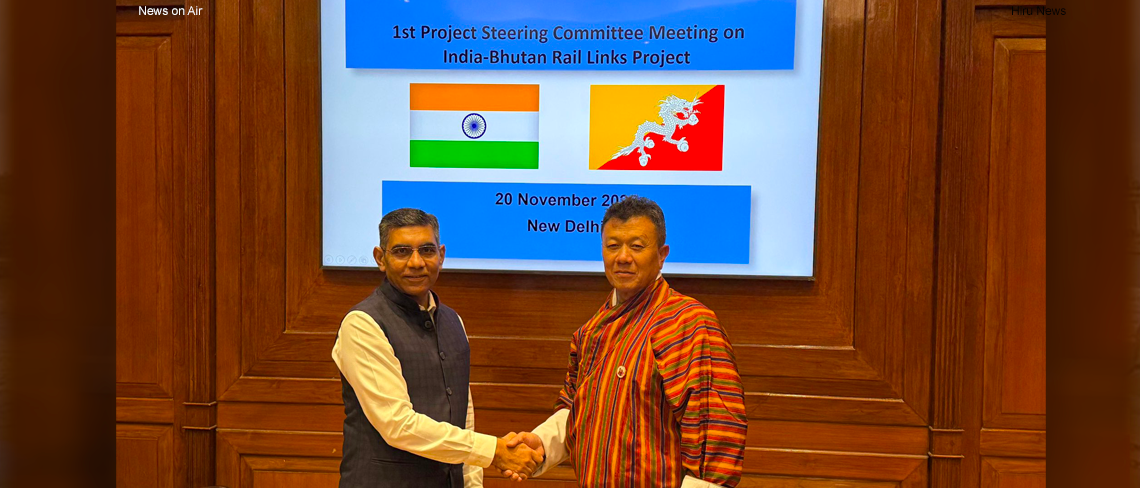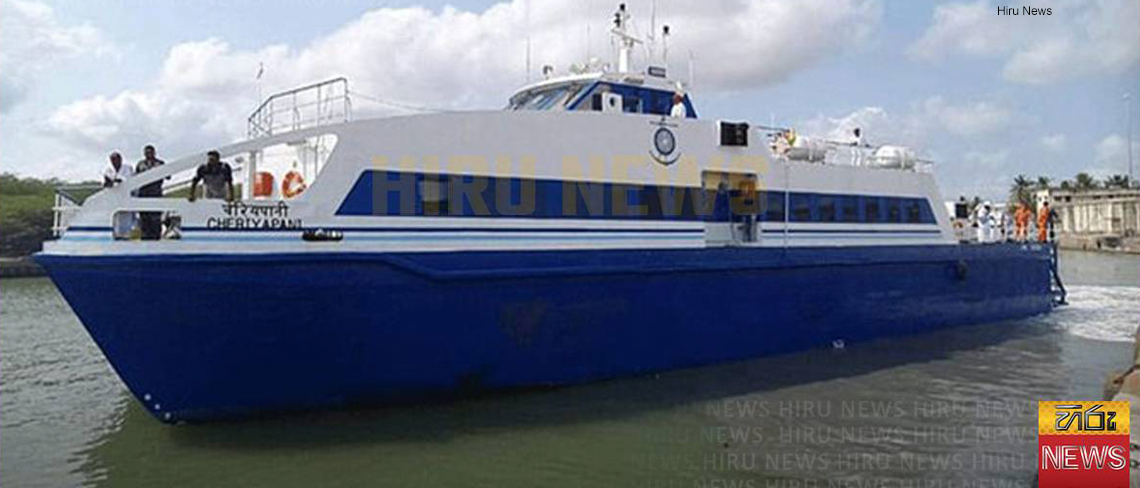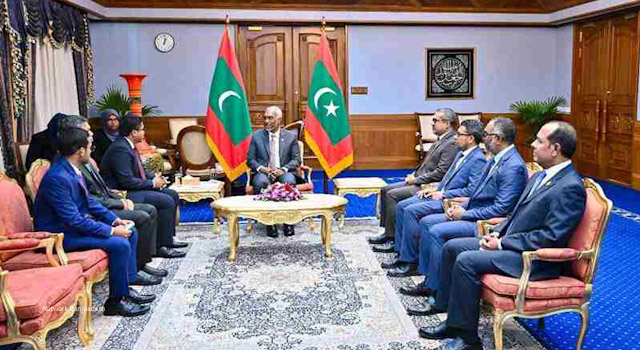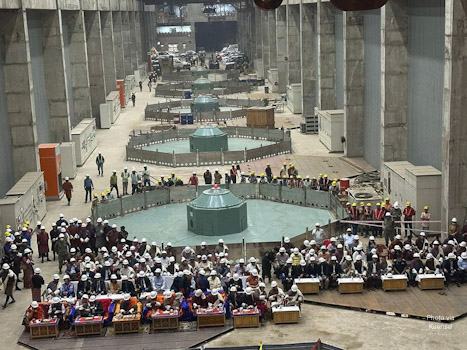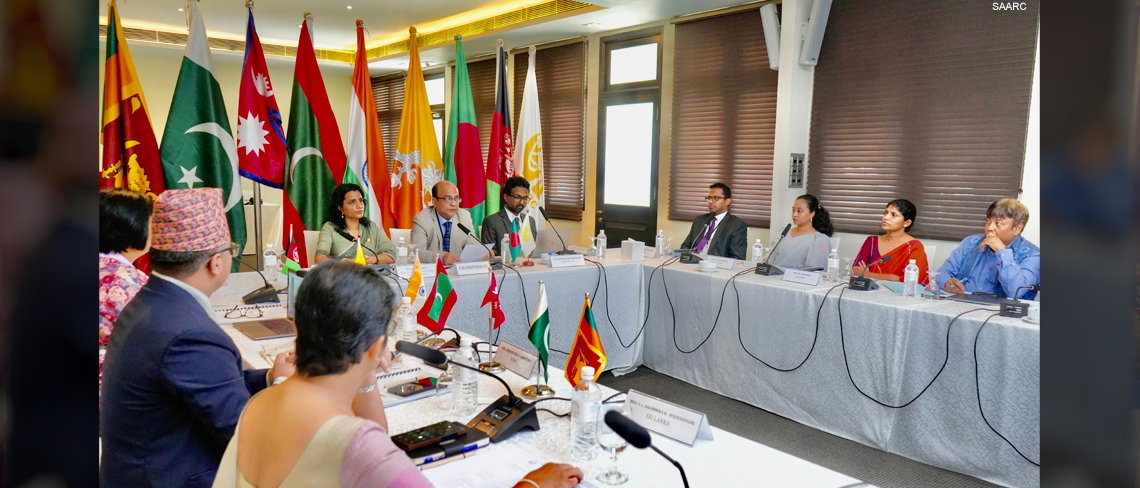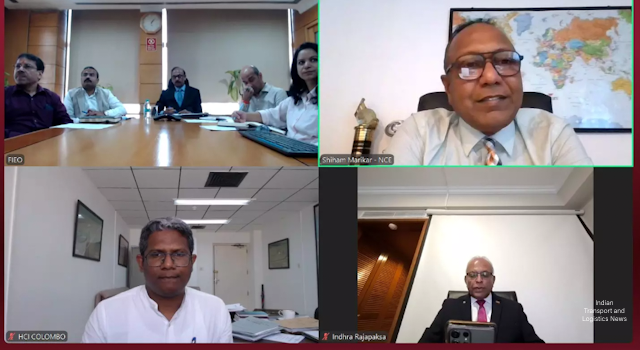
Speech: Advancing Global Trade and the Role of the WTO
9 February 2017

The outlook for trade growth has weakened and we are seeing an uncertain period in the global economy. In this speech delivered before the Confederation of Indian Industry, World Trade Organization (WTO) Director-General Roberto Azevêdo asserts that instead of raising barriers, that the opening up of trade will ensure more opportunities for more people. Given that services have become an essential tool of economic development and connectivity, he hails India’s proposal for a Trade Facilitation Agreement in Services as a welcome initiative.
Advancing Global Trade and the Role of the WTO
Remarks by DG Azevêdo
I am very pleased to join you on my fourth visit to India as WTO Director-General. And I have to say that few places are as dynamic and vibrant as India. On the eve of the country’s independence, Prime Minister Nehru described India as a country “on the verge of bold advance”. Of course there were challenges along the way, but I think it’s fair to say that this vision is bearing fruit today.
India is now the fastest growing G20 economy, with GDP growth forecast at 7.2% in 2017. And there are strong signs that the country will continue on this path. India’s commitment to stimulate growth and lift up the poorest and most vulnerable is quite evident and must be praised.
India is carrying out a wide range of reforms to improve and strengthen institutions. The demonetization initiative to help formalize the economy is an obvious example. Tax reforms will also render India an even more attractive destination for investments, besides leading to gains in scale and more effective supply chains. India is also working to upgrade its infrastructure and has created programmes to improve the business environment.
I would like to commend India’s courage in pursuing these reforms. These efforts are being recognized worldwide. The World Bank’s “Doing Business Report” last year reflects the challenges before the economy. But it shows the progress that is being made.
India’s indicators on Getting Electricity, Paying Taxes, Trading across Borders and Enforcing Contracts have sharply improved. In the World Economic Forum’s Global Competitiveness Index, India jumped up 16 places last year, now ranking 39th out of 138 countries. I think we are seeing India take its place on the world stage as a confident, dynamic country, which is ready to do business. I think that these are all positive developments, especially in the current global context.
This is proving to be an uncertain period in the global economy. The outlook for trade growth has weakened significantly and global flows of foreign direct investment have not returned to pre-crisis levels. The WTO expects the final figure for trade growth in 2016 to be around 1.7 per cent. This would mark the slowest pace of trade growth since the financial crisis.
For 2017, our studies suggest that trade will grow between 1.8 and 3.1 per cent. This is largely due to the lackluster performance of the global economy. And in such a fragile scenario, we are hearing more and more talk about inward looking policies.
While this is often the case when global growth is slow, we must emphasize that turning to protectionism would not solve the problems before us — it would make them worse. Raising barriers to trade would hurt us all, and dampen the prospects of growth everywhere — including here in India.
A charge often made against trade is that it disrupts labour markets, leading to unemployment. Yet, trade is actually a relatively minor factor here.
The impact of new and more advanced technologies on employment and manufacturing is much more significant. Studies suggest that around 80% of job losses are due to technology and innovation.
We all know that technological progress and higher productivity is indispensable for sustained growth and development. India is seeing the transformative potential of technology, with IT goods and services becoming increasingly important for the economy.
So the answer is not to reject these forces. Quite the opposite: we must embrace them and learn to adapt. So instead of raising barriers to trade, we have to make it work better. We have to ensure trade opens up more opportunities, for more people.
Trade is vital for growth, development and jobs. It has helped to lift a billion people out of poverty — and is a key element of the new Sustainable Development Goals, supporting a range of other important policy aims. Each country must find the right mix of policies that optimizes trade’s contribution to its social and economic development.
Looking ahead, we must ensure that trade continues to play a positive role here in India and across the globe. Therefore, it is vital to strengthen the global trading system.
For many years, little progress was made in global trade talks. However, things have started to change at the WTO. In the last three years, we have agreed a number of new trade deals, which have brought significant economic impacts.
The WTO’s Trade Facilitation Agreement is the biggest global trade deal so far this century, and it will enter into force in the coming weeks. India ratified the agreement early last year, helping us to get to this point.
The economic benefits of the deal will be very significant. Globally, it could boost exports by up to one trillion dollars each year, with the biggest gains being felt in the poorest countries. Estimates show that the full implementation of the Agreement could reduce trade costs in India up to 13.9 per cent.
WTO members have also made important progress on agriculture. In 2013, members agreed the Bali Decision on Public Stockholding for Food Security Purposes. This decision protects developing countries from legal challenges at the WTO in connection with governmental support for stockpiling staple foods at guaranteed prices, in the event that it should exceed the legal limit. This is often referred to as the “peace clause”. Members later clarified the decision to state, unequivocally, that this peace clause would remain in force until a permanent solution is found.
This was an important step — and of course it was particularly important for India. Nonetheless, there remains a lot to do to take this work forward - and I’ll come back to this in a moment.
Members took a further set of decisions on agriculture in 2015, including a recommitment to advance work on an agricultural special safeguard mechanism and a deal to abolish agricultural export subsidies.
There is much more to do in order to reduce distortions in agricultural markets, but these were important steps forward. In fact, eliminating these export subsidies is the biggest reform in global agriculture trade for 20 years. This was actually one element of the UN Sustainable Development Goal on Zero Hunger. So it is a big achievement that we delivered just three months after the goals were agreed in New York!
WTO members have made important progress on other fronts as well.
Members have agreed on a number of steps to help the most vulnerable to integrate into the trading system and build their trading capacities. Significant decisions have also been taken on cotton and cotton products, opening foreign markets for the most vulnerable producers — and promptly ending cotton export subsidies.
In addition, a group of members struck a deal to eliminate tariffs on a range of new generation Information Technology products. Trade in these products is worth around 1.3 trillion dollars each year. That’s bigger than global automotive trade.
This run of agreements is unprecedented for the organization. And as a result, people are beginning to sit up and take notice. We are seeing a renewed interest in the work of the organization. This is clearly very positive.
Our next Ministerial Conference is in Buenos Aires at the end of this year. That could be an important opportunity to make further progress in our talks.
The debate at the WTO is very dynamic at the moment. Members are discussing how we can make progress in a wide range of areas — including on longstanding negotiating issues that are part of the Doha Round. Many of the issues being discussed are of key importance to India. For example, several papers have been submitted in the area of domestic support in agriculture.
The ideas put forward here still haven’t been able to bridge the existing gaps. However, these ideas are being intensely debated and we must do our best to get outcomes in this area in Buenos Aires.
On other fronts, as mandated by ministers, work is ongoing to find a permanent solution on public stockholding. We have a clear and mandated deadline for finding a solution by the Ministerial Conference at the end of the year. We must redouble our efforts to meet this deadline.
Work is also ongoing on a Special Safeguard Mechanism for developing countries, which would help deal with import surges or price declines of food products that can harm domestic production. There is strong support for this, particularly from developing countries that are net food importers.
If we are to be successful on all these issues, members must step up their efforts. I will do all I possibly can to drive this forward — but progress is in the hands of members. We must shift gears and intensify the work to deliver on these matters. India’s leadership will be critical to help advance these debates.
There have also been interesting discussions on services, with India taking a leading role. The paper that India has put forward on “Trade Facilitation in Services” is a very welcome initiative. For a long time, negotiating efforts have focused on other areas. However, there seems to be a growing appetite from members to advance conversations here.
For the great majority of countries the services sector accounts for the greatest share of domestic production and employment. Therefore services have become a key part of trade policy and an essential tool of economic development and connectivity.
In India, commercial services represent 36 per cent of total exports, making the country the fifth largest exporter of services globally. So I think it is very positive that members want to do more in this area.
India’s paper on “Trade Facilitation in Services” puts forward a number of ideas to support the flow of trade in services. For example, it includes suggestions for:
- Provisions to facilitate movement of persons;
- Measures to support consumption of health services abroad;
- Facilitation of cross-border information flows;
- Cooperation among competent authorities; and
- Development provisions and technical assistance.
This takes on some challenging issues — but I welcome that ambition. Taking this forward will require further efforts to engage, clarify and explore possibilities with a range of partners. I have no doubt that India will continue to take these conversations forward. And I look forward to discussing how to advance this issue with Minister Sitharaman when we meet later today.
Of course, the WTO Secretariat will be pleased to continue supporting India on this and on other initiatives. Beyond this, some members have been talking about a number of other issues, such as:
- How to help smaller companies to trade,
- Steps on investment and investment facilitation, and
- How to harness the power of e-commerce to support inclusiveness and to help connect small suppliers, including looking at how to improve connectivity infrastructure in developing countries.
These conversations are still taking shape and it is up to members to take them forward — or not. My sense is that members want to use the WTO’s platform to ensure that debates are inclusive, so that all can have a say on these issues.
And despite differences on how to advance these conversations, there are some important commonalities. For example, there is a strong desire to maintain development at the centre of our work. There is also a shared desire to keep making progress this year, and build on the successes of the last two WTO ministerial conferences.
So members must build on these commonalities and continue talking to each other in a constant search for common ground. The WTO is a member-driven organization. It is members’ task to decide the direction of our negotiating work, to submit proposals, to consult, revise, and build convergence.
As Director-General, my role is to help facilitate these exchanges, but I can’t make things happen. It is up to members to drive any initiative forward. We succeed when members are both ambitious and flexible — and when they are ready to recognize the diversity of circumstances among the membership in finding solutions that work for all.
I am here this week to listen to India’s priorities and concerns, and see how the WTO can help. India is a very active WTO member — and a strong supporter of multilateralism on the global stage. Working together, I am sure that we can continue paving the way for India’s “bold advance”.




